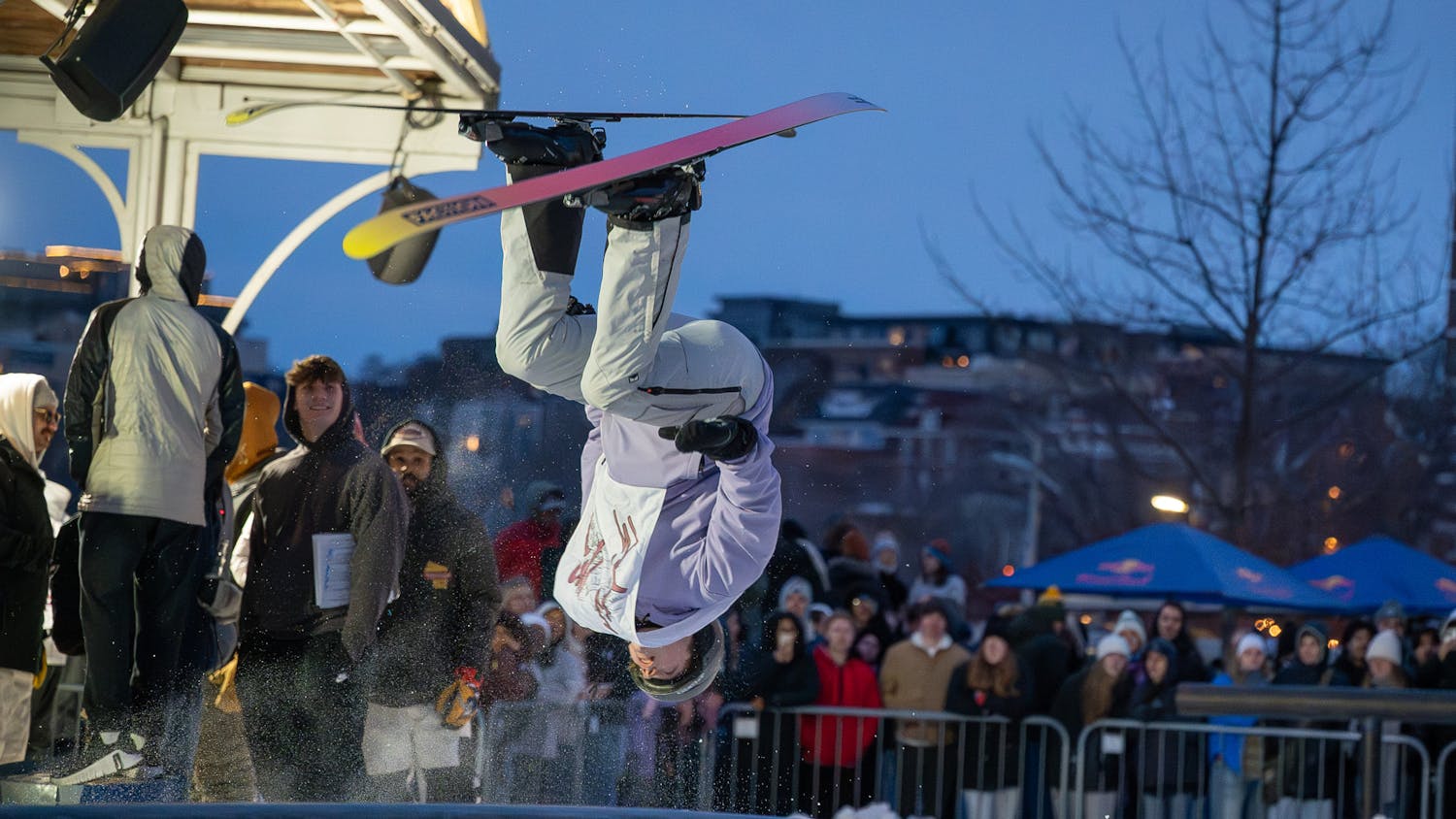Following promising news from major pharmaceutical and biotechnology companies, the Wisconsin Department of Health Services is making plans to distribute COVID-19 vaccines across the state once it becomes available. However, it may take several months before a vaccine becomes available to the general public, meaning COVID-19 precautions will likely continue for some time.
Two promising vaccines — both reporting about 95 percent effectiveness — could roll out before the end of the year. Drugmaker Pfizer applied for emergency authorization of their vaccine Friday, while fellow competitor Moderna is expected to follow suit. AstraZeneca announced Monday that late-stage trials showed one of their dosing regimens operating at 90 percent effectiveness.
Both Pfizer and Moderna’s vaccines will be free to Americans. Federal and company officials expect there will be enough doses to immunize about 20 million Americans before the end of 2020, The New York Times reported.
Healthcare providers in Wisconsin will receive vaccines once it becomes approved. Vaccinators are required to register with the Wisconsin Immunization Registry (WIR), which shares dosage and location information with the U.S. Centers for Disease and Control and Prevention along with vaccine manufacturers and distributors, according to the DHS’s COVID-19 Vaccination Plan.
A vaccine could bring much needed relief to Wisconsin, where total statewide COVID-19 deaths reached 3,000 over the weekend and some hospitals are on pace to run out of beds by next month. New confirmed COVID-19 cases have declined in recent days, but health care workers worry that potential cases arising from Thanksgiving gatherings could put further strain on hospitals.
Distributing vaccines
According to the DHS’ executive summary of its COVID-19 vaccination plan, the first phase of distributing the vaccine will prioritize healthcare personnel exposed to or treating people with COVID-19, individuals in long-term living facilities, people 65 years and older and other essential workers. Phase two will extend to other critical populations, which could include college students, and eventually the general public.
Stephanie Schauer, Program Manager for DHS’s Immunization Program who also co-leads Wisconsin’s COVID-19 vaccine response team, said last Tuesday that the state is working with local and federal partners to prepare for distribution.
DHS Deputy Secretary Julie Willems Van Dijk added that distributing vaccines will be a complicated process, citing obstacles to ensure safe and successful delivery.
“It will be the most extraordinary public health intervention our state has ever undertaken,” Van Dijk said last Tuesday. “It poses significant challenges, such as the need for ultra-cold storage, and multiple vaccines from multiple manufacturers on different schedules.”
A key difference between Pfizer and Moderna’s vaccines stems from its transportation and distribution method. Pfizer’s vaccine must be kept under ultra-cold conditions — minus 70 degrees Celsius, which is colder than winter in Antarctica — while Moderna’s vaccine can be kept under conditions similar to a regular freezer.
Mitchell Ramuta, a UW-Madison graduate student and researcher at the O’Connor Laboratory, which studies SARS-CoV-2, explained that both dosages are “mRNA vaccines,” which makes them degrade at room temperatures and become less effective in producing proteins that elicit the immune response.
“That will be kind of a big hurdle to jump through, as they go to roll it out,” Ramuta said.
Ramuta added that AstraZenecas’s vaccine uses a viral vector platform, which means it can be stored at fridge temperatures. He said this could help with distribution if the vaccine is approved.
Schauer said healthcare providers without ultra-cold storage equipment can still keep the two vaccines under proper conditions. Refreshing dry ice supplies can keep the vaccine safe for 15 days, and the vaccines can last in the refrigerator for 120 hours.
Van Dijk said the DHS has been coordinating with Wisconsin’s dry ice providers and that new vaccines with a variety of storage options will become authorized, ensuring that rural parts of the state will receive vaccines.
“We are fully committed to making sure no matter you live in Wisconsin, you will have access to this vaccine,” Van Dijk said. “There may be some logistical challenges with some of the vaccine products, but we’re confident with the variety that we’ll be receiving that we’ll be able to overcome those challenges and make sure we are able to get vaccines to people in rural parts of the state.”
UHS Health Communications Specialist Kelsey Anderson said it is too soon to know when a vaccine may become available to students and other members of the UW-Madison community.
"UW–Madison is prepared to work with federal, state and local public health partners on vaccine distribution. We have a track record of success in vaccinating large numbers of students quickly through our annual flu season campaign and during a 2016 outbreak of meningitis," Anderson said in an email.
A return to normal?
Ramuta explained that the approval of a vaccine will not immediately lead to a return to normal life. He said people should continue to socially distance, wear masks, wash their hands and take other precautions even after getting vaccinated.
“It might be a couple of months until a vaccine is available, and then it’s to be determined when it will be available for the general public,” Ramuta said. “Wearing masks and some of the precautions we have in place, we’re going to see them continue for the next few months or year, maybe.”
Ramuta explained that it takes about two weeks to develop a protective immune response after vaccination. All but one vaccine in Phase 3 clinical trials requires two doses to be effective. That “boost” increases the immune response, according to Ramuta.
Ramuta noted that because of the virus’s novelty to researchers, it remains difficult to determine when the U.S. might achieve herd immunity — when a sufficient amount of the population becomes immune to the virus — and return to normal life.
“Since this vaccine timeline has been shortened by a lot of years than a usual timeline, a lot is still unknown of what will this mean for long-term immune protection,” Ramuta said.
About six-in-10 Americans would agree to be vaccinated, according to a Gallup poll conducted from Oct. 19 to Nov. 1. That number rose from 50 percent in September.
Van Dijk emphasized that the FDA will independently review safety and possible side effects by using raw data instead of a company’s analysis. Safety monitoring will continue after approval. Schauer said communication plans are in place to answer questions that the public may have.
Additionally, the state Department of Agriculture, Trade and Consumer Protection and DHS announced Thursday that some scammers are taking advantage of recruitment for vaccine trials. The agencies recommend verifying the research study, understanding what personal information individuals must give up and to never pay to receive a vaccination.
More information and a hotline to thwart potential scammers can be found here.
Hope Karnopp is the news manager and dabbles in music reviews at The Daily Cardinal. She previously hosted the Cardinal Call for WORT-FM and edited state news.






